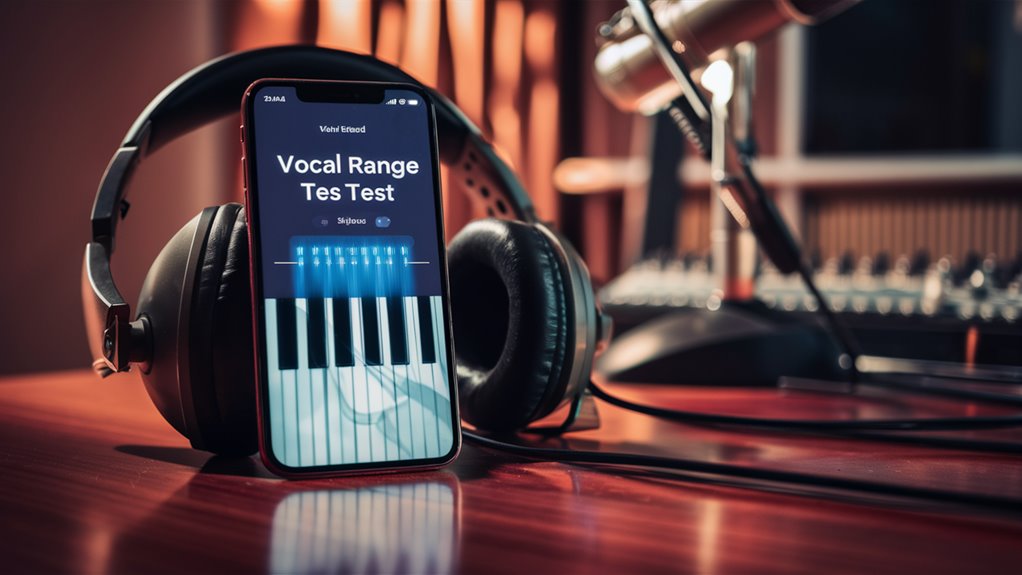How to Choose Karaoke Songs for Your Voice Type

Find Your Voice Range
Start by finding your voice range on a piano or an electronic keyboard. Hit keys one by one to find your lowest easy note and highest easy note. Note these down with their octave for later use. Tools for voice type and apps for pitch check can confirm your results with more detail.
Know About Voice Types
Voice types split into clear groups:
- Soprano (C4-C6) 호치민 퍼블릭가라오케
- Alto (G3-G5)
- Tenor (C3-C5)
- Bass (E2-E4)
Knowing your voice type helps in choosing good songs and ensures you sing well within what you do best.
Choose Right Songs
Check the original singer’s voice range before you pick karaoke songs. Music websites share key details about song pitch. Think on these points:
- First key noted
- Needs for voice pitch
- How hard the song is
- If you can keep singing it
Adjust Song Keys
Use online tools to adjust keys to fit your best singing pitch. Many modern karaoke apps let you change key instantly. Focus on:
- Staying true to good voice pitch
- Making the singing easy
- Singing smoothly
- Controlling your loud or soft tones
Make Your Song List
Create a personal list of karaoke songs based on:
- Your checked voice range
- The types of music you enjoy
- How confident you feel singing it
- How well it might engage the audience
Regular practice within your known range will improve your singing skills and expand your abilities widely.
How to Determine Your Singing Range
Find Your Lowest Note
Start in the middle of the piano, going down gradually. Press each key and sing until finding your lowest smooth note.
You should be able to produce this sound easily. Write down this precise note and octave for later use.
Search for Your High Notes
Start at middle C and move up the scale with an “ah” sound. Climb up until you reach your highest easy note without strain or switching to falsetto.
Document this high note and the octave correctly.
Classify by Voice Type
Female Voice Types
- Soprano: C4-C6
- Mezzo-soprano: G3-E5
- Contralto: E3-E5
Male Voice Types
- Countertenor: E3-E5
- Tenor: C3-C5
- Baritone: G2-G4
- Bass: E2-E4
Test and Record
Record your voice while finding your range to make sure:
- The tone is clear
- You breathe well
- The sound is strong
- No strain is present
- Your voice stays steady
Use this noted range to choose suitable songs that flaunt your voice’s strengths and comfort zones.
Understanding your actual range prevents strain and aids in selecting best songs for performances.
Top Karaoke Songs for Each Voice Type
Find Your Song Match
Choosing songs that suit your voice range is crucial for a great karaoke performance.
This complete guide divides popular karaoke options by voice type to assist singers in doing their best.
Soprano Songs
- Whitney Houston – “I Will Always Love You” (C3-C6)
- Mariah Carey – “Hero” (F3-G5)
- Adele – “Rolling in the Deep” (A2-D5)
Alto & Mezzo-Soprano Favorites
- Alanis Morissette – “You Oughta Know” (F3-D5)
- Amy Winehouse – “Rehab” (G3-C5)
- Tracy Chapman – “Fast Car” (E3-B4)
Tenor Favorites
- Journey – “Don’t Stop Believin'” (E3-B4)
- Sam Smith – “Stay With Me” (C3-B4)
- Bruno Mars – “Just the Way You Are” (D3-A4)
Baritone Hits
- Johnny Cash – “Ring of Fire” (G2-A4)
- Elvis Presley – “Can’t Help Falling in Love” (D3-G4)
- Leonard Cohen – “Hallelujah” (C3-F4)
Bass Top Picks
- Barry White – “Can’t Get Enough of Your Love” (F2-C4)
- Tom Waits – “Downtown Train” (D2-G3)
Each song includes detailed vocal range info to ensure singers choose songs they can perform well and enjoy.
Online Tools for Finding Your Range: What to Use

Must-Have Apps
Testing your vocal range is now much easier with modern technology, allowing accurate checks you can perform with phones and tablets.
Apps like “Vocal Pitch Monitor” display your voice in real time and translate it into clear music notes.
These apps use the mics in your device to provide quick feedback on pitch accuracy and range awareness.
Web-Based Testing Options
Web tools for vocal range offer robust tests through sites like “Vocal Range Test” and “SingScope.”
These online tools ensure you measure your entire voice range accurately with preset tones, helping users map their range across several octaves and receive feedback on pitch precision and sustain.
Pro Level Software
Top vocal testing tools like “Voiceprint” and “Sing&See” provide advanced range analysis through sound wave analysis and detailed pitch tracking.
These high-end tools analyze critical voice features like passage points and pitch shifts, and maintain detailed records for tracking progress.
The software generates comprehensive data sets allowing singers to monitor range development over multiple tests.
Main Functions of These Tools
- Show pitch in real time
- Analyze by frequency
- Map where your voice fits
- Track performance over time
- Measure critical voice features
- Indicate voice changes
How to Change Song Keys for You: All You Need
Learn Your Voice Range
Knowing your comfortable singing range is the first key step in adjusting song keys.
Use a piano or electronic keyboard to discover your highest and lowest good notes.
Document these limits well, as they will guide all subsequent key changes.
Get Original Song Keys
Reading sheet music and using pitch apps are essential to learn a song’s original key.
Most karaoke venues display this.
If the key isn’t visible, check the song’s main chord progression, especially the start and end chords, to identify the original key base.
Methods to Change Keys
How to Do It Digitally
Modern karaoke tools allow you to select the precise pitch in small increments.
Popular apps like Smule and SingSnap offer straightforward key change options, marked as +/- adjustments.
Begin with minor changes, 1-2 steps, to preserve the song’s authentic feel.
Optimal Range for Key Changes
Keeping your vocal integrity is crucial even when you alter keys.
Limit changes to 3-4 steps from the original to maintain the song’s fundamental tone.
Consider the soul of the song and how the melody suits when choosing the optimal key for you.
Consider the Sound Quality
Monitor the sound quality as you shift keys, as large changes can fill the tune with distortion.
Professional pitch-changing tools aid in keeping sound clarity, especially in digital karaoke setups.
Always extensively test your selected key before you perform or record.
Best Key Change Practices
- Note down effective key changes for future use
- Practice in the new key before performing live
- Consider the song’s genre when selecting key adjustments
- Employ top tools for optimal results
- Maintain consistent vocal performance across different keys
Working at Karaoke: Improve with Smart Practice
Key Practice Elements
Structured voice exercises require you to focus on main areas:
Achieving accurate pitch
Controlling your breathing
Maintaining precise timing
Expanding your range
Allocate 15-minute sessions for each before combining them.
This systematic approach aids in learning and retaining skills effectively.
Leverage Technology for Improvement
Recording and reviewing are key to progress. Use your phone’s recorder to:
Observe how stable your pitch remains
Evaluate your overall performance
Identify areas for enhancement
Practicing with a metronome cultivates essential rhythm sense and timing, necessary for high-quality singing.
Organize Your Practice Effectively
Daily Practice Schedule
10 minutes to warm up your voice
20 minutes to match pitch
15 minutes to work on breath support
Enhance Your Live Performances
Concentrate on mastering a full song before adding more to your repertoire.
Daily practice for 30-45 minutes yields better results than infrequent, prolonged sessions.
Maintain Vocal Health
Ensure adequate hydration How to Pick the Perfect Karaoke Song for Your Mood
Provide sufficient rest for your voice
Be alert for signs of vocal fatigue
This disciplined approach ensures steady progress while preserving your voice and enhancing your karaoke capabilities.
